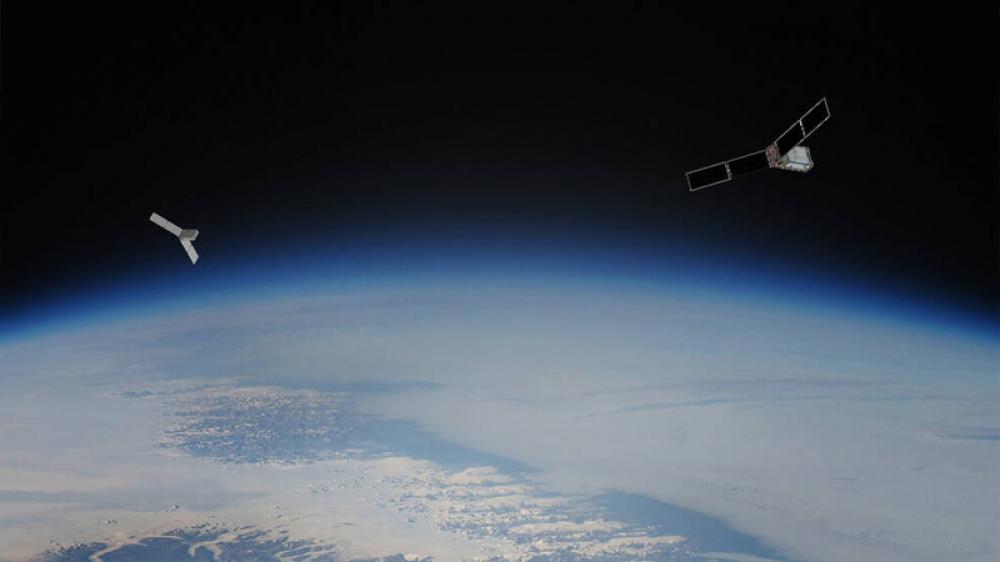Just Earth News | @justearthnews | 16 Aug 2023, 12:00 am Print
 NASA
NASA Artist's concept of PREFIRE CubeSats in space. Photo Courtesy: NASA JPL
The U.S. National Aeronautics and Space Administration (NASA) has said it selected Rocket Lab USA Inc. of Long Beach, California, to provide the launch service for the agency’s PREFIRE (Polar Radiant Energy in the Far-InfraRed Experiment) mission, which aims to give researchers a more accurate picture of the energy entering and leaving Earth.
The PREFIRE mission will help close a gap in our understanding of how much of Earth’s heat is lost to space, especially from the Arctic and Antarctica, read a statement issued by NASA.
Analysis of PREFIRE measurements will inform climate and ice models, providing better projections of how a warming world will affect sea ice loss, ice sheet melt, and sea level rise.
Improving climate models can ultimately help to provide more accurate projections on the impacts of storm severity and frequency, as well as coastal erosion and flooding.
The mission consists of two, 6U CubeSats with a baseline mission length of 10 months and is jointly developed by NASA and the University of Wisconsin-Madison.
NASA’s Jet Propulsion Laboratory in Southern California manages the mission for the agency’s Science Mission Directorate and is providing the instruments.
Blue Canyon Technologies is building the CubeSats, and the University of Wisconsin-Madison will process the data collected by the instruments.
The science team includes members from JPL and the Universities of Wisconsin, Michigan, and Colorado.
NASA’s Launch Services Program, based out of the agency’s Kennedy Space Center in Florida, in partnership with NASA’s Earth System Science Pathfinder office, is announcing the launch service as part of the agency’s VADR (Venture-class Acquisition of Dedicated and Rideshare) launch services contract.
- Why are scientists warning about surging glaciers? All details inside
- Mass coral bleaching to hit Great Barrier Reef most years, study reveals
- Global water bankruptcy shock: Why the planet’s most precious resource Is collapsing
- Would you pay $1 million to stay on the moon? This company thinks so
- A historic UN deal is about to transform how the world protects its oceans





-1763561110.jpg)
